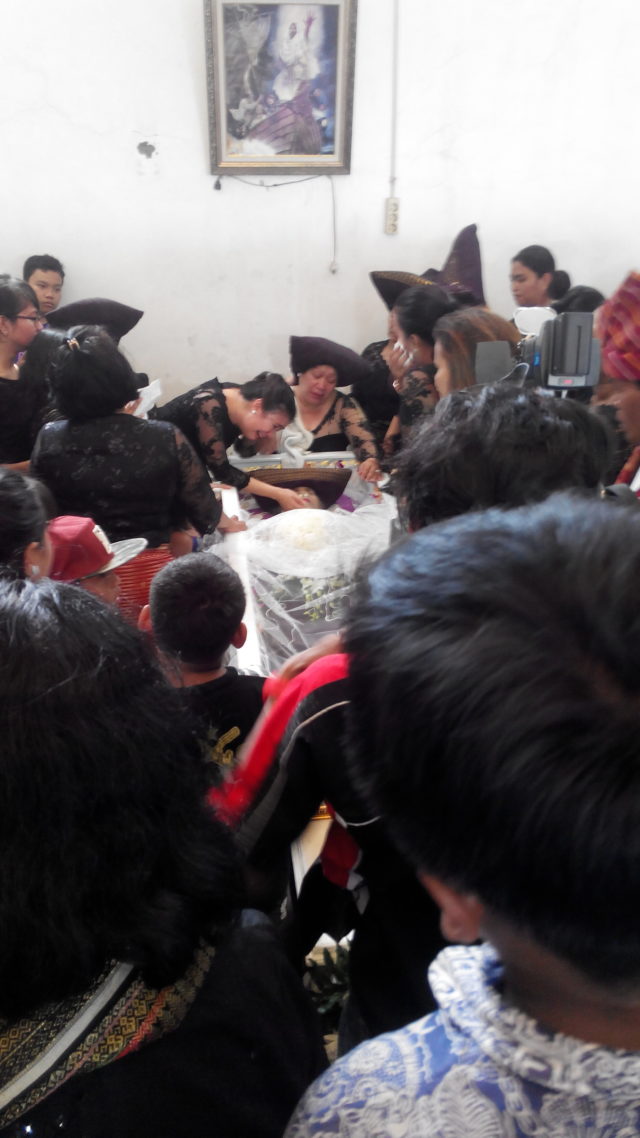Death in Karo Tribe
Death Ceremony in Karo Tribe
According to Koentjaraningrat (1982: 1) culture is a whole system of ideas, actions, and the man’s work in the context of a society that used belong to human beings by learning.
Transition ceremony (rites of passage) is a religious ceremony associated with important stages in human life such as birth, death and marriage (Emmy Indriyawati 2009: 66).
Currently, author would like to describe a little bit about death, human being death type in one tribe, Karo tribe from North Sumatera province, Indonesia.
Karo
Karo is one of the peoples who inhabited the Karo Highlands, North Sumatra, Indonesia. This tribe is one of the largest tribes in North Sumatra. This tribal named as one name in one of the district where they lived (Karo Highlands)Tanah Karo is located in the district. This tribe has its own language called Karo Language. Karo’s Clothes dominated by the color of red as well as black and filled with gold colour.
Unlike neighboring tribe of Batak, Karo tribe has its own distinctive greeting of “Mejuah-Juah”
Death in Karo
Death in Karo tradition is generally divided into three (3) types, namely;
- Cawir metua; if the age of the people who died has been advanced and all the children has married and had also consecrated with the “Ngembahken Nakan” (feeding parents who are aging or prolonged illness and is considered unlikely to recover ).
- Tabah-Tabah Galoh; if the age of the people who died not aging yet but all his children already get married.
- Mate Nguda; if the age of the people who died is still young, not married yet, or if already married all his children have not get married yet.

Seeing from the cause of the death, divided into 9 types:
- Dead in the womb; the spirit of the dead called Batara Guru
- Dead before the gender is known (premature); the spirit of the dead called Guru Batara or Sabutara.
- Dead after birth; the spirit of the dead called Bicara Guru.
- Dead has not teething, the dead child is buried, wrapped in white fabrics (dagangen), removed from the traditional house through perik door (window), one pass it from inside the house and others received it from the outside, the funeral should be in secret due to fear of being stolen. According to the beliefs of those who believe in witchcraft, dead baby who has not had teeth can be used to complete the occult (example, Puko = Aji Sirep). Aji Sirep reputedly used by thieves or robbers that robbed residents would fall asleep so that he is free to act.
- Dead children have grown teeth.
- Dead in virgin / not married; in this situation, if the person who died is a man, Anak Beru (the family worker) will incorporate decedent’s penis into a piece of bamboo and when the girl died, then the vagina will be fed with a corn cob while saying: “Enda sekerajangenmu” (this is yours ), others might said, “Enggo pejabu kami kam, enggo sai utang kami” (we already marry you, and our obligation had finished). Words enda sekerajangenmu ( this is yours) by some people believed that the spirit of the deceased is not curious / drool (Teran) because they have not tasted “heaven world” (the intimate relationship of husband and wife). And the words, “enggo pejabu kami kam, enggo sai utang kami” of the Anak Beru which is a statement of Anak Beru who said his job was finished to deliver / take care of the child of kalimbubu wedding.
- Dead while delivery a baby called Sirang Ture
- Dead because of ill called Kayat-kayaten.
- Dead because of accident called Mate sada wari; his or her thomb is separated from the common one, usually, located near the house, plant with banana tree and worshiped.




Comments :